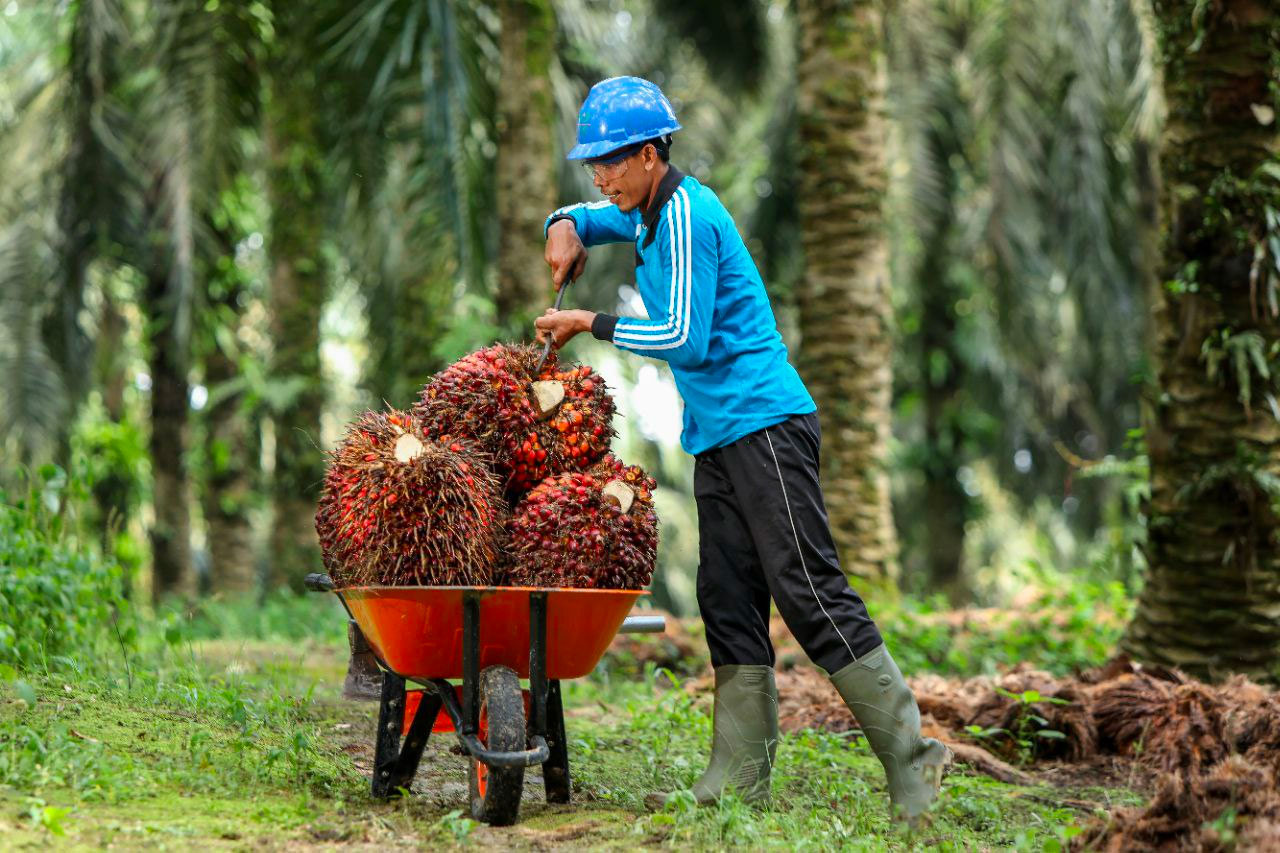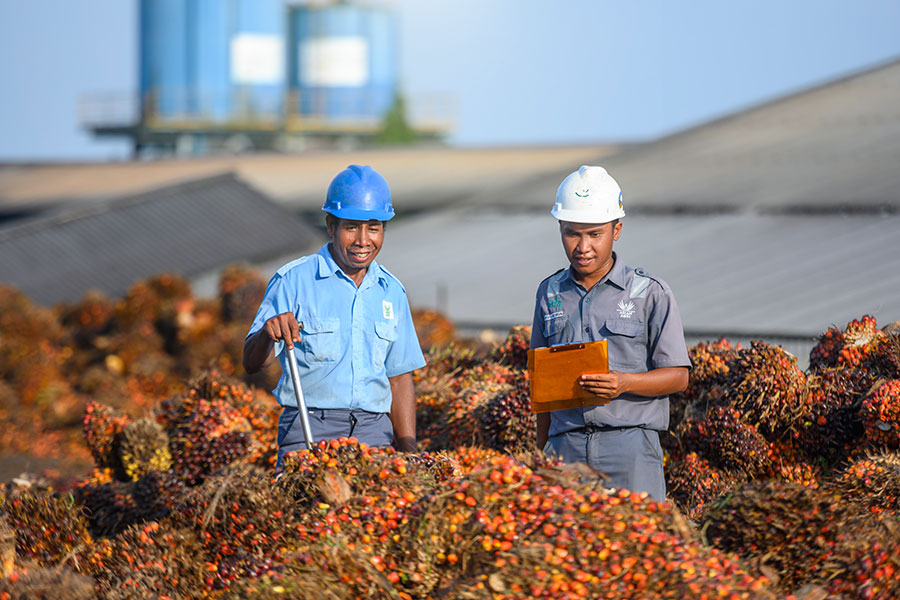Smallholders are an Inseparable Part of Our Business

More than 40% of Asian Agri Oil Palm Plantations are Owned by Smallholders.
Asian Agri sustainably manages 100,000 hectares comprising of 30 plantations owned by the company and about 60,000 hectares of plantations owned by smallholders. Asian Agri makes sure that sustainable development practices are applied in all operational areas, including in plantations owned by smallholders.
Sustainable Palm Oil Mill
Our mill is designed sustainably and equipped with an integrated waste management system. Equipped with the latest technology, our mills have the capacity to produce up to 1 million tons of CPO per year in order to meet market demand. Currently, Asian Agri owns 23 palm oil mills located in North Sumatra, Riau and Jambi

Plantations
Managing oil palm plantations sustainably
Asian Agri has 30 oil palm plantations spanning 100,000 hectares located in the provinces of Riau, Jambi, and North Sumatra. Under our plasma scheme, we also partner with independent smallholders that manage a total of 60,000 ha of plantation and over 42,500 ha of estates. In this partnership, we focus on developing the technical, financial, and sustainability capabilities of our smallholder partners through training and assistance.
Mills
Managing environmentally friendly palm oil mills
Asian Agri produces more than 1 million metric tons per year of Crude Palm Oil (CPO) across our 23 mills. All of our mills are ISCC certified and apply the highest standard of sustainability, with a focus on minimizing waste and using renewable energy.

Products
Maintaining high quality from seed to oil
From our sustainably managed plantations to our closed-loop mills, Asian Agri maintains the highest standard of quality for all our products.
Research & Development
At the Asian Agri R&D Centre
Improving yields in a sustainable and environmentally-friendly manner is key to our business, and is supported by the Asian Agri R&D Centre in Tebing Tinggi, North Sumatra. Established in 1989, today it employs more than 50 researchers and 150 research technicians specializing in agronomy, soil, pests, diseases, breeding and biotechnology.

